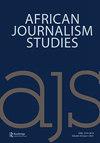非洲政府对虚假信息的回应如何限制言论自由,而对解决这一问题却无能为力
IF 1.8
3区 文学
Q3 COMMUNICATION
引用次数: 1
摘要
尽管从古埃及到现代,错误信息在非洲和世界各地都被认为是一个问题(Darnton 2017;Posetti和Matthews 2018),但自2016年全球北方政治动荡以来,人们对其可能产生的影响的担忧急剧增加。虚假信息造成的伤害超出了政治领域。错误信息已被确定为在埃塞俄比亚(Nur 2019)和尼日利亚(Adegoke 2018)等国引发治安维持者暴力和内乱,导致对埃博拉(Ogala和Ibeh 2014)、疟疾(Faive Le Candle 2019)和2019冠状病毒病(Busari和Adebayo 2020)使用无效和危险的医疗方法,并危害心理健康(Kulundu 2019),企业(加纳事实2019)等等。由于公众表现出了他们自己的担忧(Wasserman和Madrid Morales 2018),因此政治领导人发表的声明数量有所增加。尼日利亚新闻部长赖·穆罕默德在2018年告诉记者,“在我们这样一个多民族、多宗教的国家,假新闻是一颗定时炸弹。最近几周,许多无政府主义者一直在尽一切可能引爆炸弹”,呼吁公众保持警惕(Okakwu 2018)。与此同时,塞内加尔总统Macky Sall发表讲话,要求教育部制定媒体扫盲战略,以“打击‘假新闻’和其他虚假信息”(Cissé2018)。在2021年6月发表的两篇研究论文中,我和七位同事研究了两个主要回应:(I)针对在传统和社交媒体上发布或传播的“虚假信息”引入新的或更严格的法律,以及(ii)在公立学校教授“媒体素养”的承诺。本文阐述了这些论文的研究结果;目前的政策未能实现其减少所造成伤害的既定目标,并提出了可以在不限制合法媒体和政治辩论的情况下减少伤害的替代对策。本文章由计算机程序翻译,如有差异,请以英文原文为准。
How Government Responses to Misinformation in Africa Restrict Freedom of Expression and Do Little to Tackle the Problem
While misinformation has been recognised as a problem in Africa and around the world, from ancient Egypt into modern times (Darnton 2017; Posetti and Matthews 2018), concern about the effects it may have has grown sharply since political upheavals in the Global North in 2016. Harm caused by false information goes beyond the field of politics. Misinformation has been identified as provoking vigilante violence and civil unrest in countries such as Ethiopia (Nur 2019) and Nigeria (Adegoke 2018), leading to the use of ineffective and dangerous medical treatments for Ebola (Ogala and Ibeh 2014), malaria (Faive Le-Cadre 2019), and coronavirus disease 2019 (Busari and Adebayo 2020) and harms to mental health (Kulundu 2019), businesses (Ghana Fact 2019) and much more. As the public have shown their own concern (Wasserman and Madrid-Morales 2018), so the number of statements made by political leaders has increased. “In a multi-ethnic and multi-religious country like ours, fake news is a time bomb. And in recent weeks, many anarchists have been doing everything possible to detonate the bomb”, Nigeria’s Information Minister Lai Mohammed told reporters in 2018, calling for public vigilance (Okakwu 2018). At the same time, Senegal’s President Macky Sall made a speech demanding that the education ministry develop a media literacy strategy to “counter ‘fake news’ and other false information” (Cissé 2018). In two research papers published in June 2021, seven colleagues and I examined the two primary responses taken: (i) the introduction of new, or stricter, laws against “false information” published or broadcast on traditional and social media and (ii) promises of teaching “media literacy” in state-run schools. This article sets out the findings of these papers; the failure of the current policies to meet their stated aim of reducing the harm caused and proposes alternative responses that could reduce harm without restricting legitimate media and political debate.
求助全文
通过发布文献求助,成功后即可免费获取论文全文。
去求助
来源期刊

African Journalism Studies
COMMUNICATION-
CiteScore
1.90
自引率
10.00%
发文量
18
期刊介绍:
Accredited by the South African Department of Higher Education and Training for university research purposes African Journalism Studies subscribes to the Code of Best Practice for Peer Reviewed Scholarly Journals of the Academy of Science of South Africa. African Journalism Studies ( AJS) aims to contribute to the ongoing extension of the theories, methodologies and empirical data to under-researched areas of knowledge production, through its emphasis on African journalism studies within a broader, comparative perspective of the Global South. AJS strives for theoretical diversity and methodological inclusivity, by developing theoretical approaches and making critical interventions in global scholarly debates. The journal''s comparative and interdisciplinary approach is informed by the related fields of cultural and media studies, communication studies, African studies, politics, and sociology. The field of journalism studies is understood broadly, as including the practices, norms, value systems, frameworks of representation, audiences, platforms, industries, theories and power relations that relate to the production, consumption and study of journalism. A wide definition of journalism is used, which extends beyond news and current affairs to include digital and social media, documentary film and narrative non-fiction.
 求助内容:
求助内容: 应助结果提醒方式:
应助结果提醒方式:


